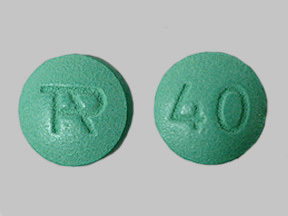The potential compensation for an Uloric lawsuit aims to match the losses suffered by the victim or, in the case of a wrongful death claim, the losses suffered by the victim’s family. These losses come in a variety of forms, including:
- Medical expenses,
- Lost wages,
- Reduced ability to earn a living,
- Pain and suffering, and
- Loss of consortium.
By filing a lawsuit over the injuries you sustained from using Uloric, you can potentially recover compensation for all of these losses.
- 1. What is an Uloric lawsuit?
- 2. Compensation available with an Uloric personal injury lawsuit
- 3. Compensation available with a wrongful death claim involving Uloric
- 4. Proving the extent of your losses in an Uloric lawsuit
- 5. Punitive damages in an Uloric lawsuit
- 6. Caps on compensation in an Uloric lawsuit

1. What is an Uloric lawsuit?
An Uloric lawsuit is a personal injury claim against Takeda Pharmaceutical Company for fatal heart problems caused by their prescription pill for gout, Uloric. These lawsuits argue that Takeda, the company that manufactures and sells Uloric in the U.S., failed to warn consumers about the cardiovascular risks that Uloric could cause. These cardiovascular risks significantly increase the risk of a patient suffering a fatal:
- Stroke,
- Heart attack, or
- Unstable angina.
While Uloric was initially approved by the U.S. Food and Drug Administration (FDA) in 2009, a postmarket clinical trial was published in 2018 that suggested Uloric increased the risk for cardiovascular death.1 The results of the trial, known as the CARES trial, led the FDA to issue a safety announcement about these risks,2 and to add a box warning to Uloric’s label.3
These warnings served as a notification to doctors and patients that Uloric could cause fatal heart problems, and limited Uloric’s approved use to patients who did not respond well to alternative gout treatments.
Since the news broke of Uloric’s increased risk for cardiovascular death, lawsuits have been filed against Takeda Pharmaceutical that claim the drug company failed to warn people of the danger. These lawsuits seek compensation for injuries that were caused by Uloric’s side effects and complications.
2. Compensation available with an Uloric personal injury lawsuit
Uloric lawsuits aim to recover compensation for all of the ways that the victim was hurt by the drug. These losses go far beyond just the medical care that the victim needs to recover from the heart conditions that Uloric created or exacerbated.
Compensation should include financial coverage for:
- Future medical expenses that are associated with the heart problems caused by Uloric, like on-call or live-in nursing care and follow-up surgeries that are scheduled after the time of the trial,
- The costs of home modifications necessary to accommodate a victim who has lost mobility because of their heart problems,
- Wages or business opportunities that have been lost while the victim was recovering,
- Reduced ability to earn a living, thanks to the debilitating effects of the cardiovascular injuries caused by Uloric,
- Physical pain and mental suffering, and
- The loss of companionship felt by the victim’s family.
3. Compensation available with a wrongful death claim involving Uloric
If the victim of Uloric’s side effects succumbed to their injuries, their family can file a wrongful death claim on their behalf against Takeda Pharmaceutical. These wrongful death claims, however, can lead to different forms of compensation than typical personal injury claims that are filed directly by the victim. Wrongful death claims, after all, aim to compensate the victim’s family for their losses, rather than those suffered by the victim.
Because each state has its own wrongful death statute, the exact nature of the compensation available in a wrongful death claim can depend on where it is filed. In California, for example, wrongful death claims aim to recover compensation for:
- Funeral and burial expenses,
- The family’s loss of consortium and companionship for the victim, and
- Financial support that would have been provided by the deceased victim, were it not for their injuries.4

4. Proving the extent of your losses in an Uloric lawsuit
Whether your Uloric lawsuit is a personal injury claim for your own injuries or a wrongful death claim for the death of a loved one, you will still have to prove the extent of your losses in order to recover compensation for them.
For some forms of compensation, this involves gathering evidence like:
- Medical bills,
- Statements from doctors and surgeons about the future medical care and procedures you will need,
- Details about the number of hours you have missed at work and your hourly wage,
- Bills from any necessary home modifications, and
- Statements from employers and experts about your professional future.
Proving the extent of your pain and suffering and your family’s loss of companionship, however, can take the trial skills of a defective drug lawyer from the Shouse Law Office. Call us to discuss your legal options and prepare your Uloric lawsuit before the statute of limitations gets too close.
5. Punitive damages in an Uloric lawsuit
In addition to compensation for a victim’s injuries, Uloric lawsuits can also include demands for punitive damages against Takeda Pharmaceutical. These damages are meant to punish Takeda for failing to warn doctors and patients of the risks of Uloric.
Uloric lawsuits are still in their early stages and no punitive damages have been awarded against Takeda, yet. However, other defective drug lawsuits involving a drug company’s failure to warn consumers of the risks of their drugs have led to punitive damages, in the past.
6. Caps on compensation in an Uloric lawsuit
Some states limit, or cap, the amount of compensation that a victim can receive in certain types of cases. While most of these damage caps focus on the field of medical malpractice, not products liability and defective drug law, some states have statutes that limit non-economic damages like pain and suffering, as well as punitive damages. If your lawsuit is filed in one of these states, you may be prevented from recovering all of the compensation that you need to make a full recovery.
Legal References:
- Cardiovascular Safety of Febuxostat and Allopurinol in Participants With Gout and Cardiovascular Comorbidities.
- FDA Drug Safety Communication, “FDA adds Boxed Warning for increased risk of death with gout medicine Uloric (febuxostat),” (February 21, 2019).
- FDA Warning Label for Uloric – 2019.
- California Code of Civil Procedure 377.60.
